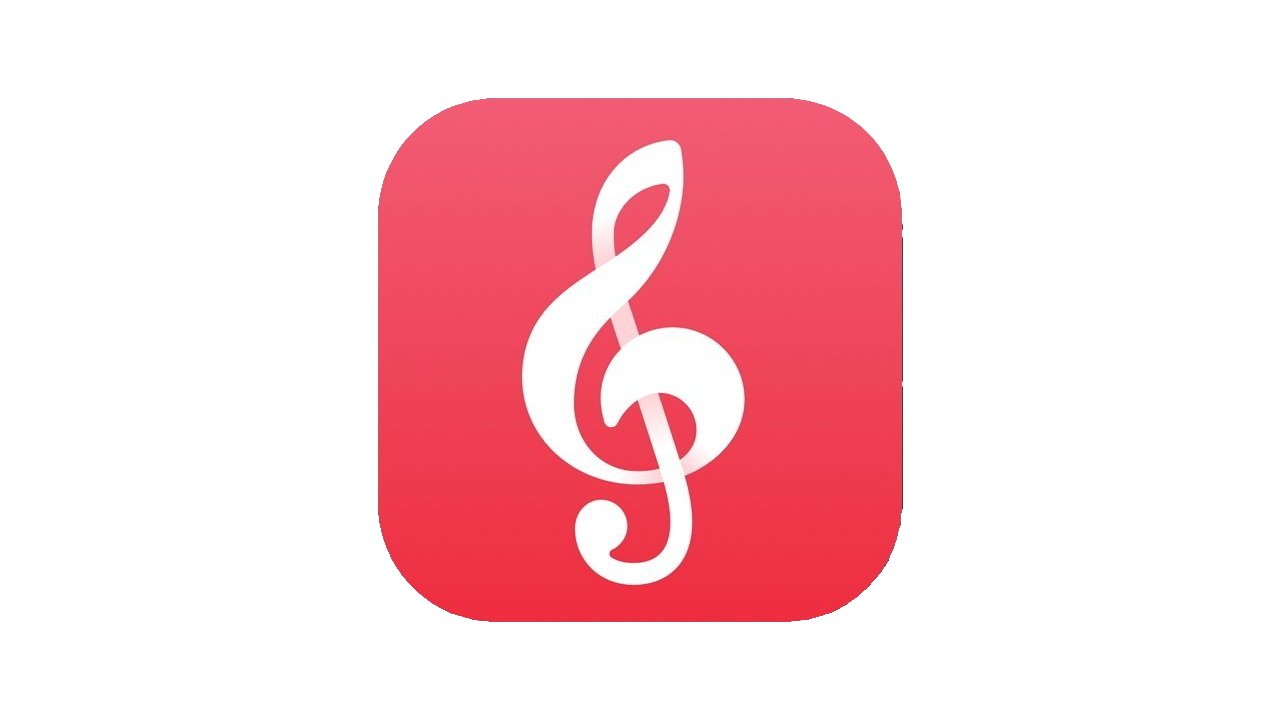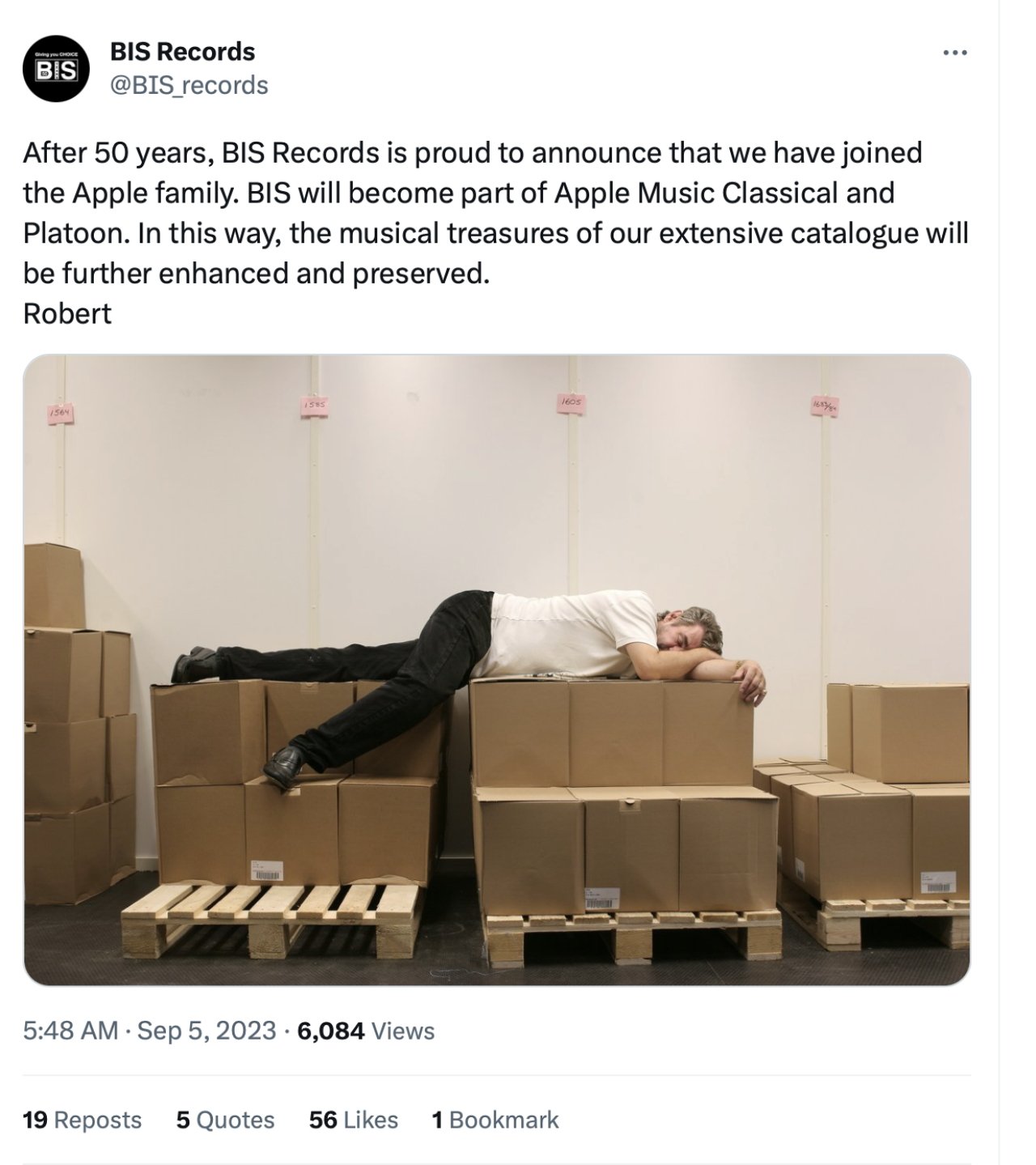Apple Music acquires famed classical label BIS
Fifty-year-old classical music company BIS Records has been bought by Apple Music, expanding the availability of its catalog and continuing to search for new talent.

Apple Music Classical
Apple Music Classical was borne of Apple acquiring streaming service Primephonic in 2021, although it took much longer than expected to release the Apple service. The Apple Music Classical app is not Apple's greatest design, but its classical collection is huge -- and now it's taken a further step forward.
BIS Records says that it is joining Apple Music Classical to get its music to more people, and also Apple's less well-known Platoon program for talent spotting.
"BIS will become part of Apple Music Classical and Platoon," announced BIS Records founder Robert von Bahr in a blog post. "As proud as I am of this milestone, I am even more proud of the fact that the entire personnel of BIS, including me, have been retained."

BIS Records' announcement on Twitter/X
"We thought long and hard on how to maintain and build upon our prestigious history and looked for a partner who would further our mission, as well as an increased global platform to bring classical music to new audiences all over the world," continued von Bahr. "Apple, with its own storied history of innovation and love of music, is the ideal home to usher in the next era of classical and has shown true commitment towards building a future in which classical music and technology work in harmony."
"Apple and BIS also share a fundamental belief in the importance of preserving audio quality," said the founder. "As you are all aware, BIS has always been about exceptional sound quality, and Apple's dedication to sound, as well as to Spatial Audio, is something I have followed with interest."
Apple has not commented on the deal. It's also not known how long it will take for the BIS Records catalog to appear in Apple Music Classical.
Currently Apple Music Classical is available on iPhone and Android, but not the Mac or the iPad.
Read on AppleInsider

Comments
Starting out on a single device made sense for working out the kinks before expanding to other devices. This is particularly true when one can imagine that there is likely a high correlation between the classical music listener base and people who have worked out their own customized catalog of their digitized classical archives. As such, no matter how robustly organized an Apple Music Classical App is, when expanded to other platforms - particularly Mac - it will be functionally different than however most people have built their own customized archives. Those people will of course be annoyed, irritated or angry about that. It's a sure bet.
Still, it's high time for Apple to bite the bullet and move forward with the other platforms. There's also a strong correlation between the classical listener base and people who have dedicated audio hardware setups for sitting and actively listening to music. I'm one of those people. I can play everything from century-old (and older) 78 rpm records to full-immersion Dolby Atmos recordings in my den. So at present, I have to follow the non-optimal process of using the classical music app on my iPhone to search and explore, then save items of interest to my 'library,' use the regular Apple Music app on my Apple TV to go to my library, pull those albums up there and finally play that on my home audio system. It's time I should be able to search and explore the classical music app directly on the ATV.
So I'm hoping the fact that Apple acquired not just the BIS catalog, but also their entire staff means that they're still pressing forward with the classical App as a featured item across all of their platforms, rather than as a quirky cousin kept in a back room on your iPhone.
The record industry -- like so many other industries -- has gone through lots of consolidation and I don't keep track of who owns which label. I think there was a Big 5 of the record industry but I'm not even sure if that's still accurate anymore.
The fact that Sony owns Columbia today doesn't change the merits of old Columbia recordings. And if Sony were to spin off Columbia or sell the label to someone else, that wouldn't be significant. A new label logo might appear on the CD album art but that doesn't change the 1's and 0's on the disc.
Since I have hundreds of classical albums, there's no telling how many record labels they represent. Some are no longer active but that doesn't make Pavarotti's voice any dimmer.
You might even find some for free. This summer, here in Montreal, there were, among other great free musical events, several free outdoor concerts given by the Montreal Symphony Orchestra and the Orchestre Metropolitain. Attendance was in the 60-75 thousand range for some of them. A standing ovation among that many people is a part of the wonder of classical music that comes rather rarely.